We've all been thereâlife gets busy, and deadlines slip through the cracks. If you find yourself in a situation where you've missed an important deadline at work, it's essential to address it with a sincere apology to maintain professional integrity. Crafting the right words can help mend relationships and set the stage for better communication in the future. If you're ready to learn how to write an effective apology letter that will get you back on track, keep reading!
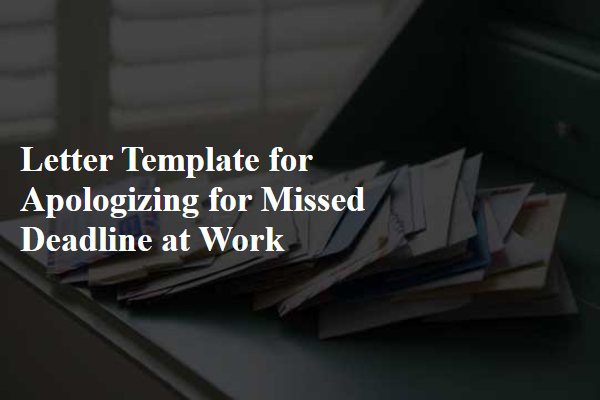
Expression of apology
Missed deadlines can have significant ramifications in a professional environment. The acknowledgment of a missed deadline is crucial in maintaining professional relationships and trust. A sincere expression of apology should address the reasons behind the delay, such as unforeseen circumstances or workload challenges. It is essential to convey accountability and demonstrate understanding of the impact on team dynamics and project timelines. Proposing a clear plan for corrective actions, along with a commitment to timely future submissions, reinforces the intent to improve and respect the collaborative efforts of colleagues at the workplace. Taking these steps not only fosters goodwill but also helps restore confidence among team members and supervisors alike.
Acknowledgment of the missed deadline
Missing a deadline can significantly impact project timelines and team efficiency in a workplace environment. Acknowledgment of the missed deadline demonstrates personal responsibility and professionalism. For example, a project that was due on September 30 involved crucial collaboration between departments, including marketing and product development. This setback may delay the product launch scheduled for November 15, affecting sales projections and customer satisfaction. Recognizing the importance of each team member's role and the overall project timeline is essential for maintaining positive workplace relationships and ensuring accountability in future tasks.
Explanation of the reason
An apology letter template for a missed deadline at work helps convey regret and accountability. Such a template typically includes a clear acknowledgment of the specific project or task missed, reinforcing the importance of timely completion in a professional setting. It often elaborates on the reasons for the delay, such as unforeseen circumstances like illness or unexpected workload, to provide clarity and context. Additionally, it emphasizes a commitment to rectify the situation, outlining steps to prevent similar occurrences in the future, thereby restoring trust with both colleagues and supervisors. This tailored communication serves as a crucial tool for maintaining professionalism and fostering positive work relationships.
Reassurance of resolution
Apologies for a missed deadline can significantly affect professional relationships. Acknowledging the impact on business schedules and team workloads is crucial. Accepting responsibility for the delay underscores accountability. Emphasizing a commitment to rectifying the situation, along with offering a clear timeline for completion, can restore trust. Reassuring colleagues or supervisors of the steps taken to prevent future occurrences reflects proactive problem-solving. Highlighting improved time management strategies or adjustments in workload distribution can enhance credibility. Following through on promises solidifies the intention to maintain a reliable work ethic, fostering a supportive work environment.
Commitment to future improvements
Missed deadlines can severely impact project timelines and team dynamics, often causing frustration and stress among colleagues. Acknowledgment of responsibility is crucial, particularly in professional environments like corporate offices, where timely completion can determine client satisfaction and future contracts. Establishing a plan for future improvements is essential to restore trust; this could involve implementing better time management techniques, utilizing project management tools like Trello or Asana, and prioritizing tasks using methods such as the Eisenhower Matrix. Regular check-ins with team members can also foster accountability and ensure everyone remains aligned. Ultimately, committing to ongoing development and transparent communication can significantly mitigate the repercussions of past oversights.

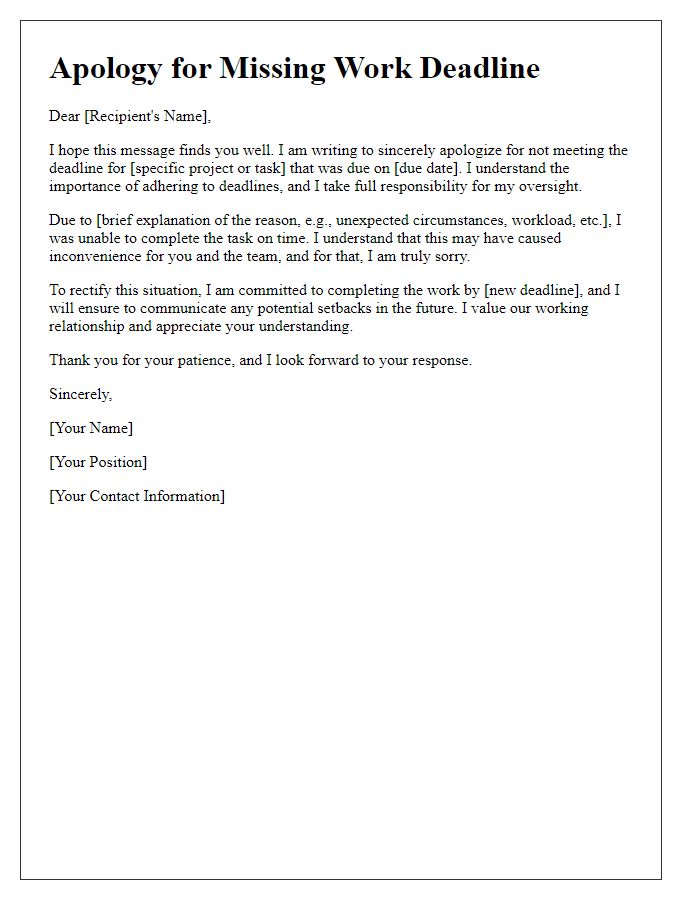
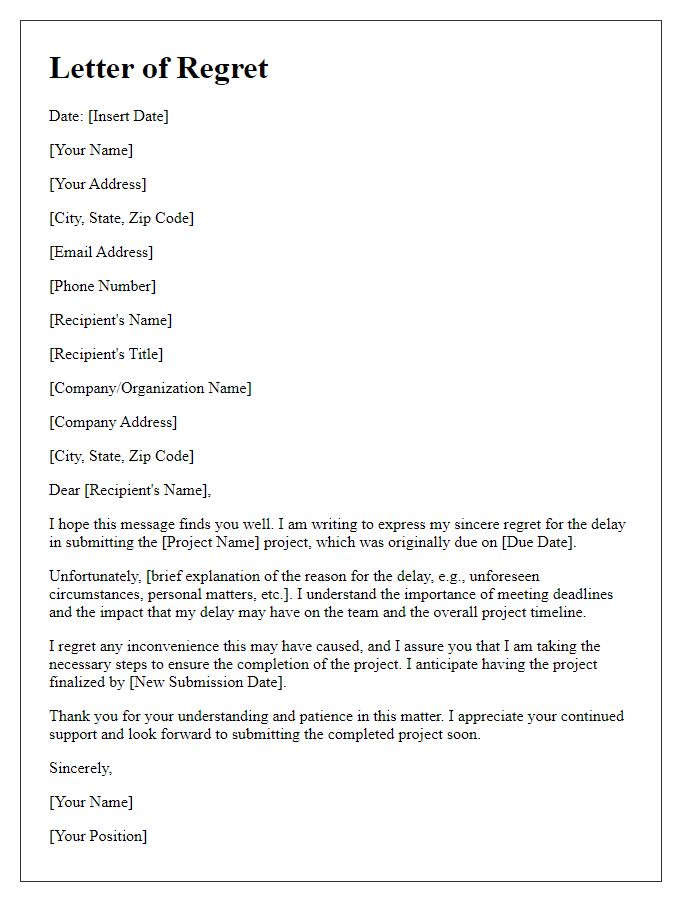
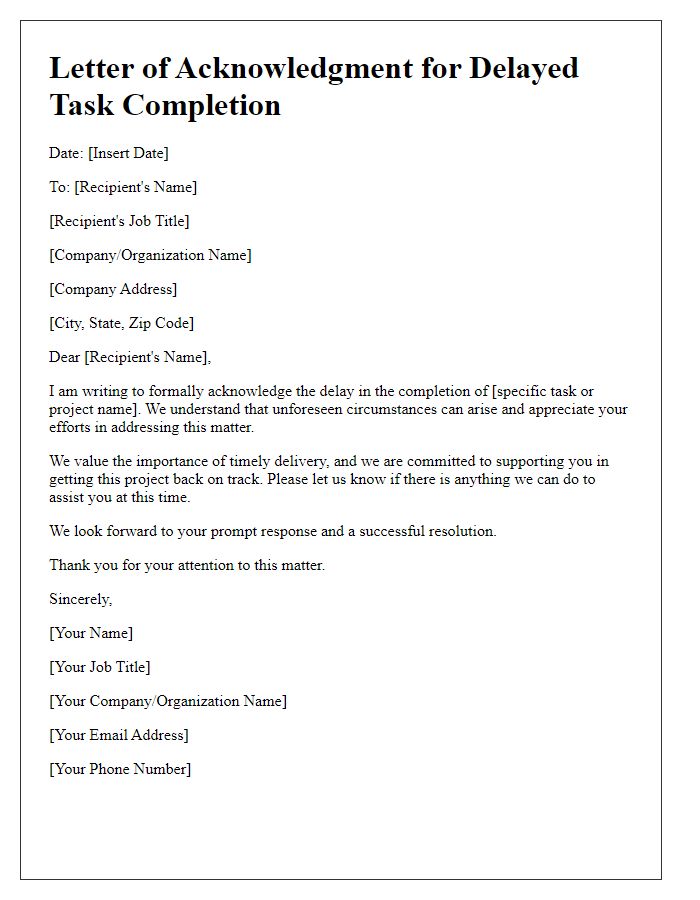
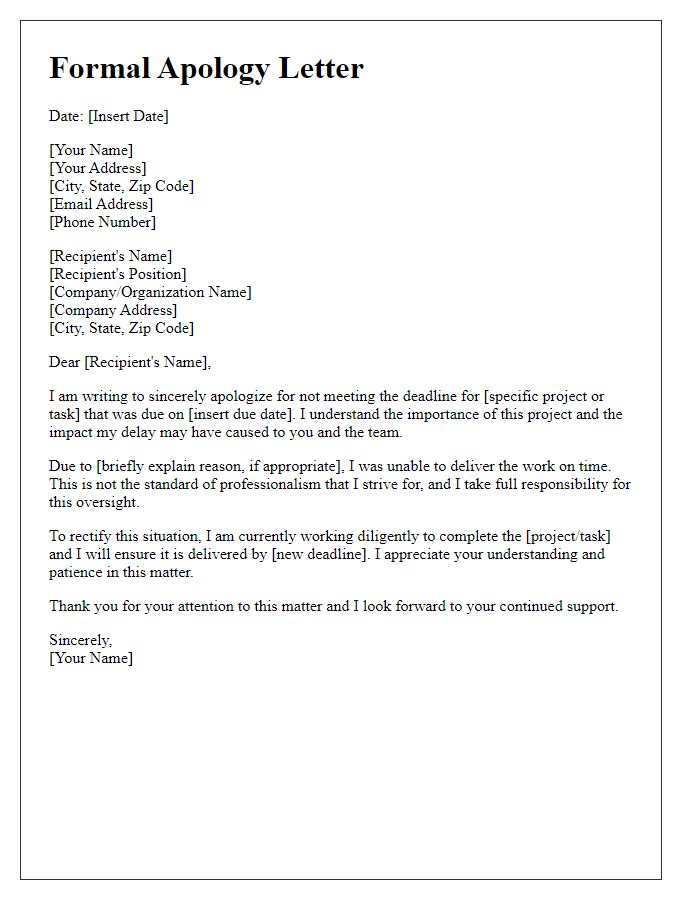
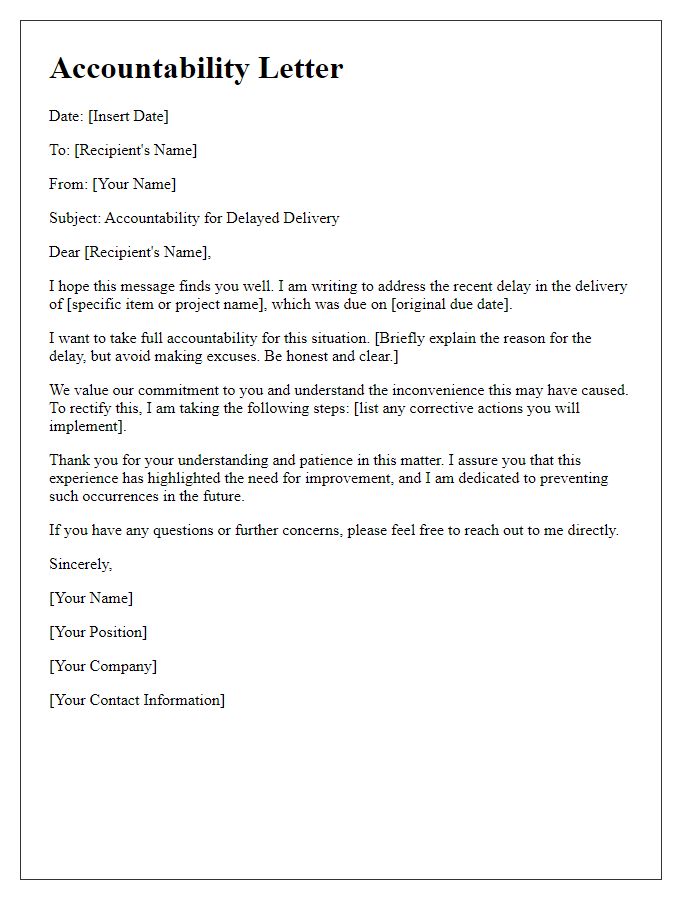
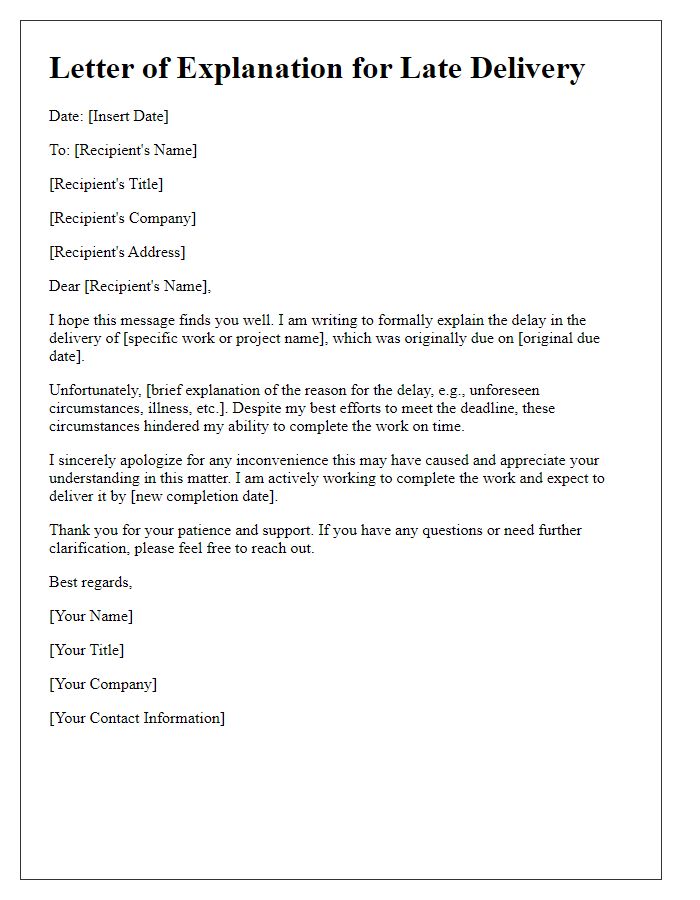
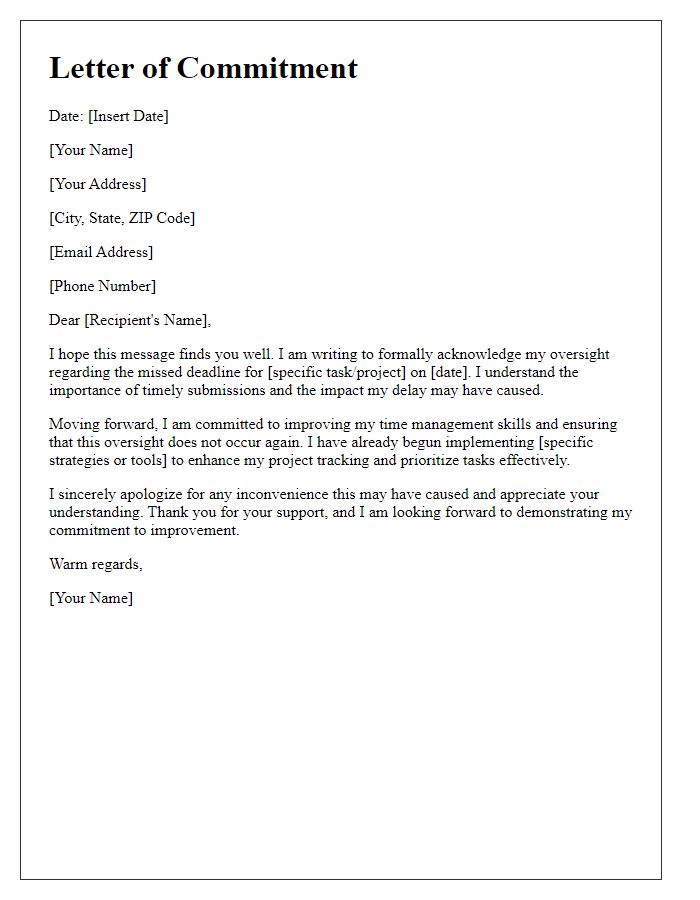
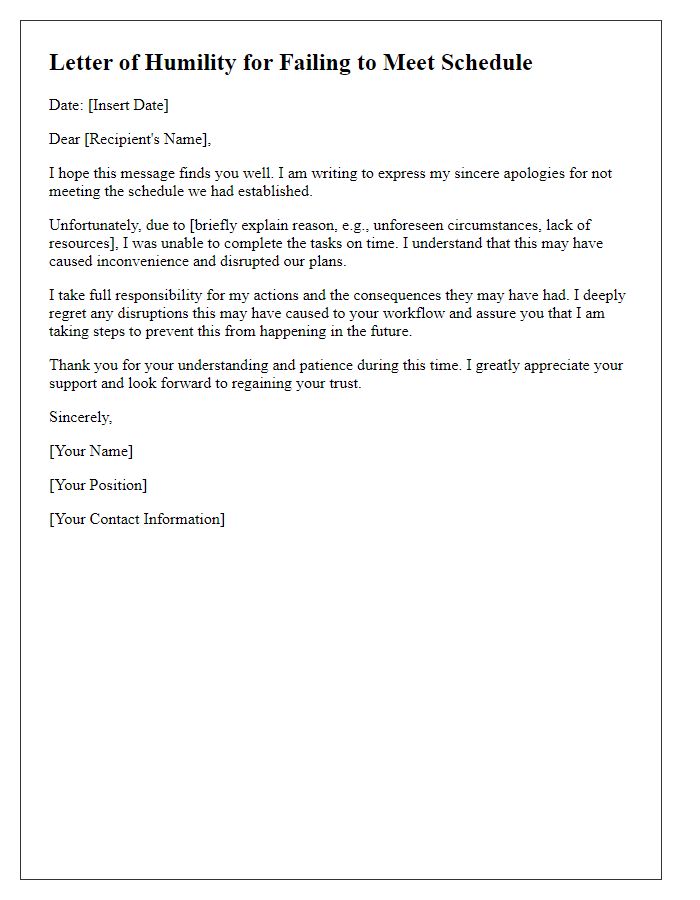
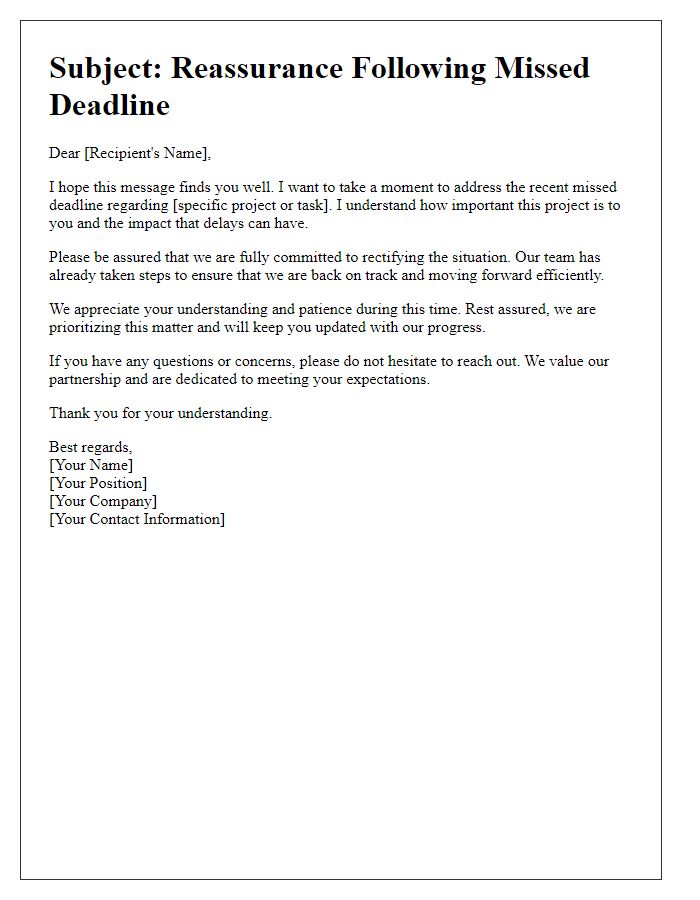
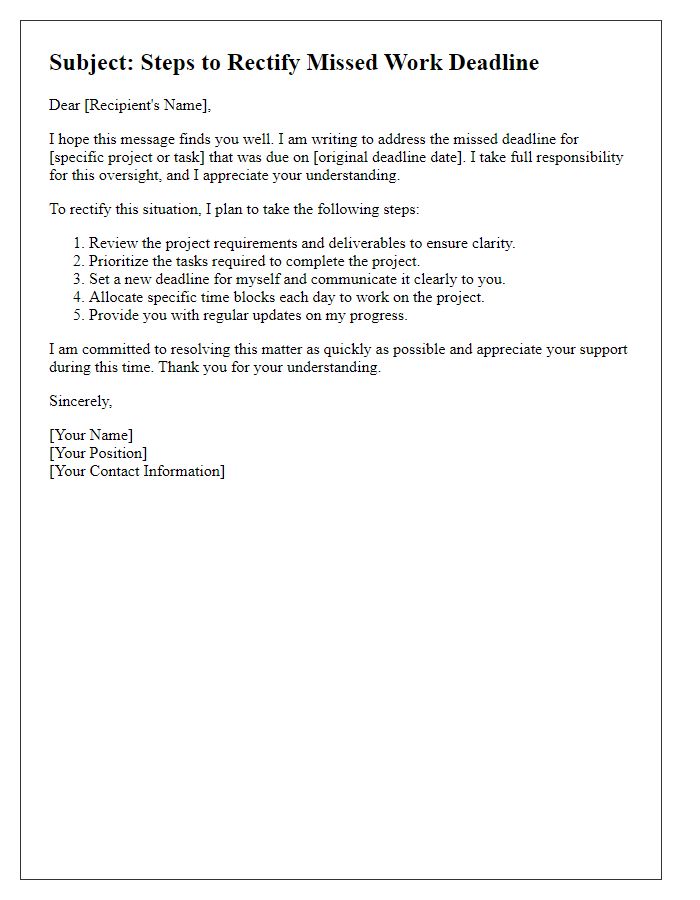

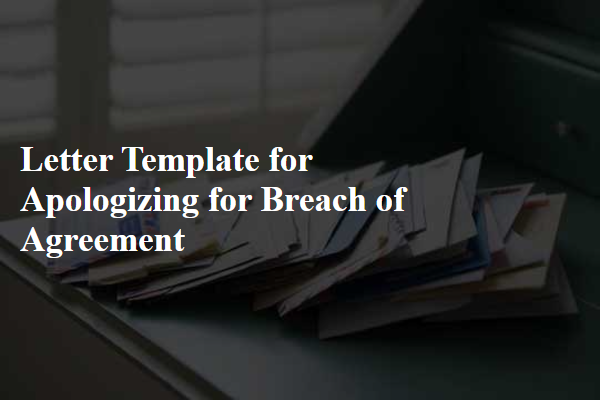
Comments